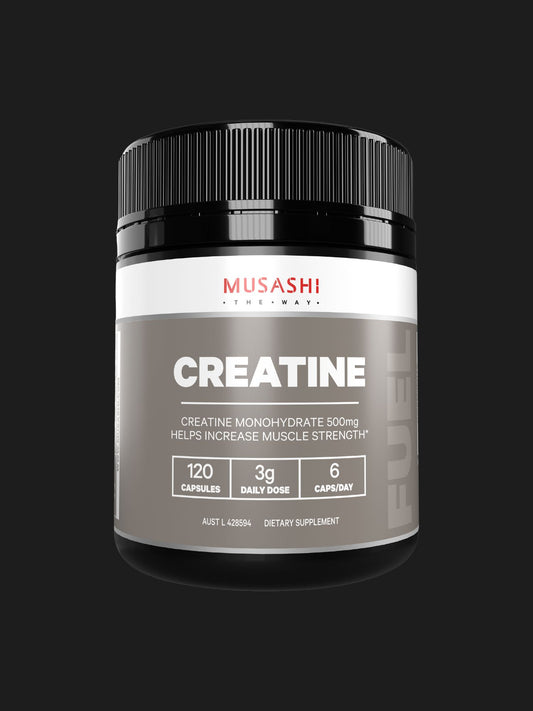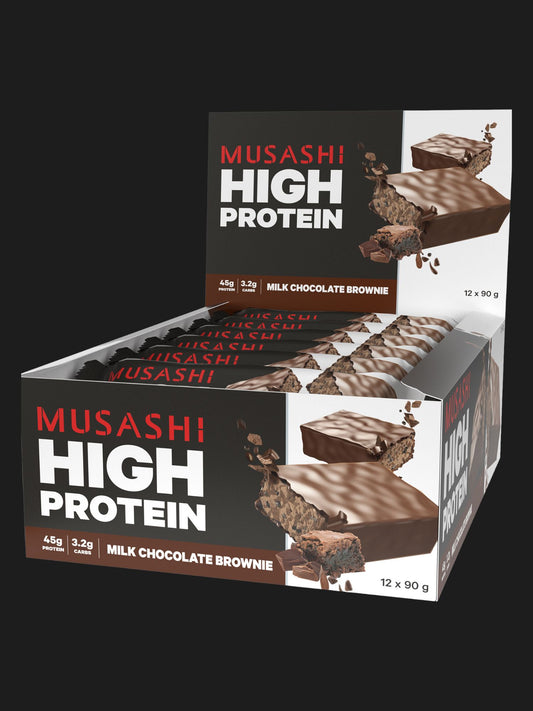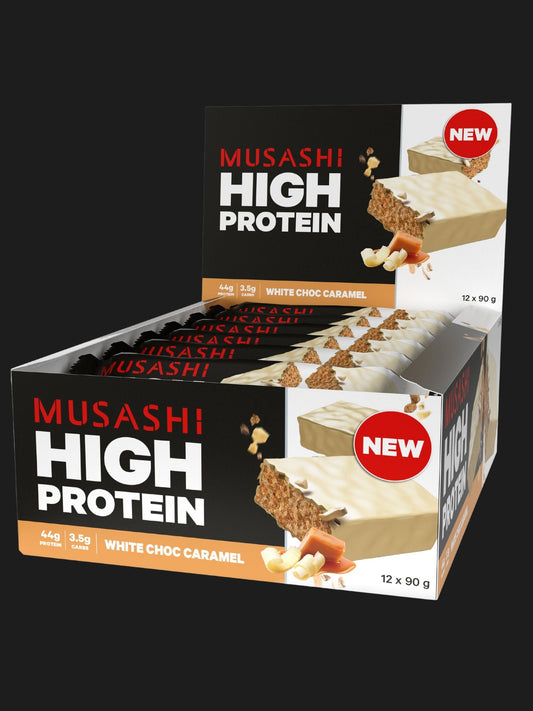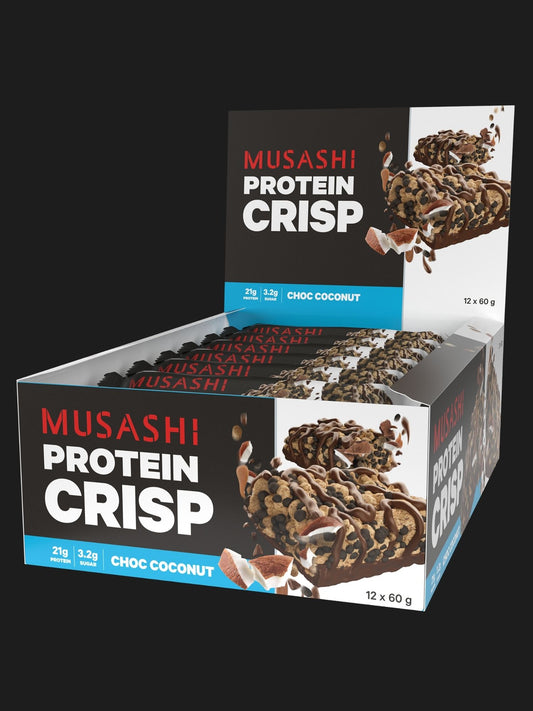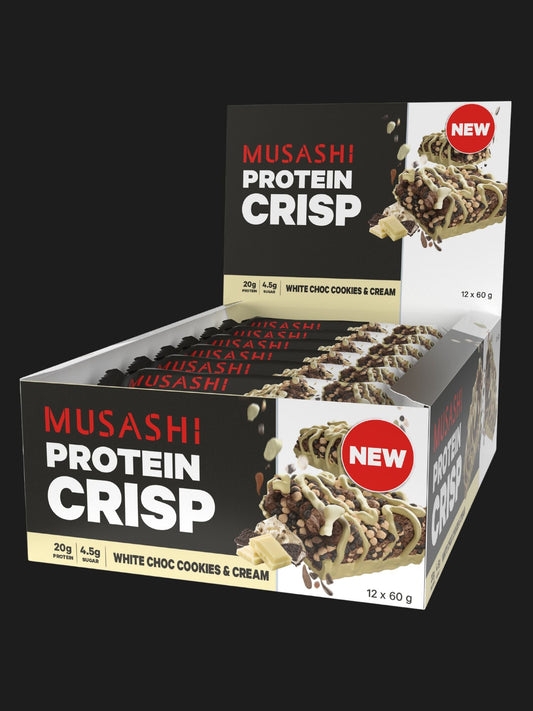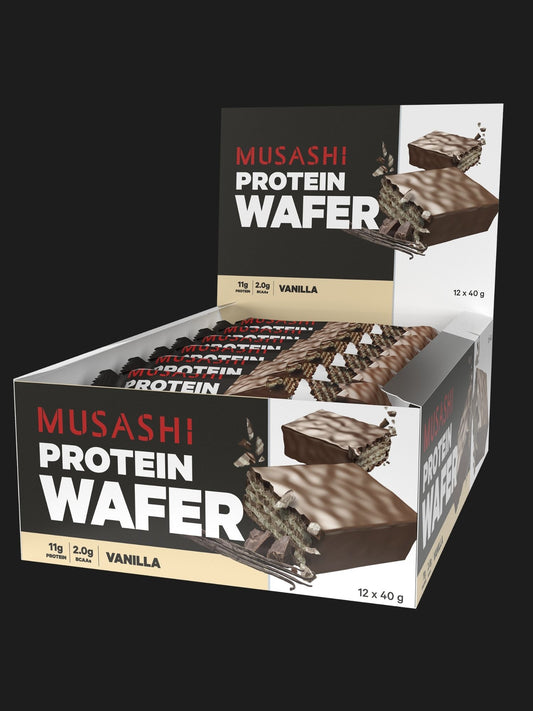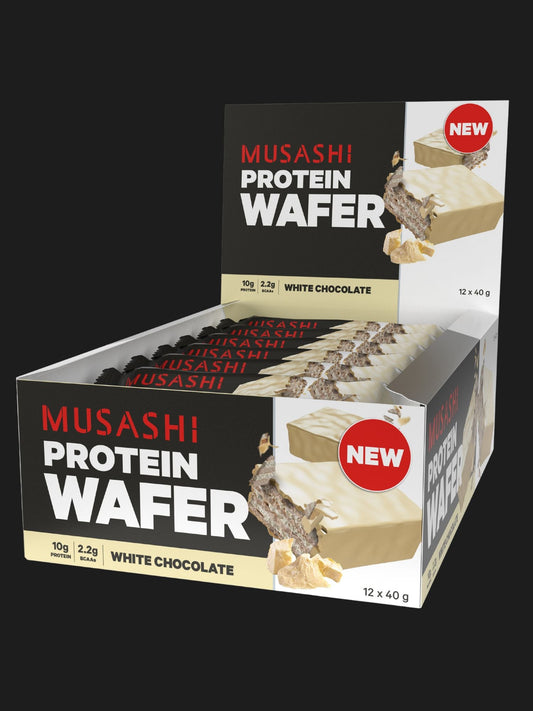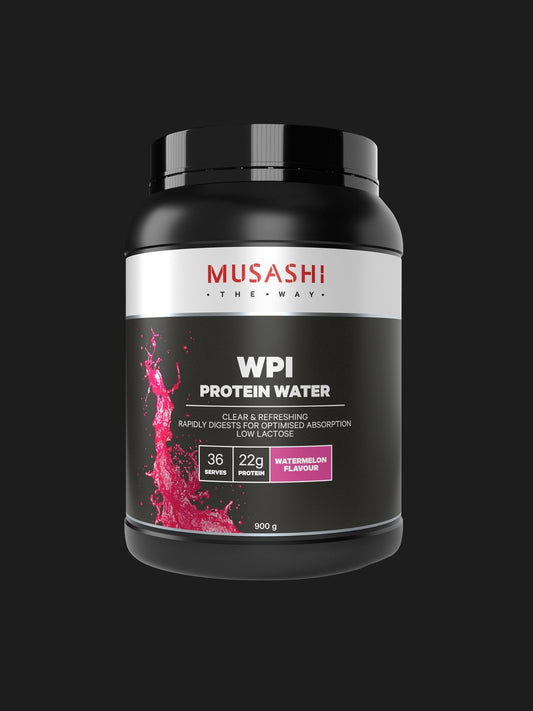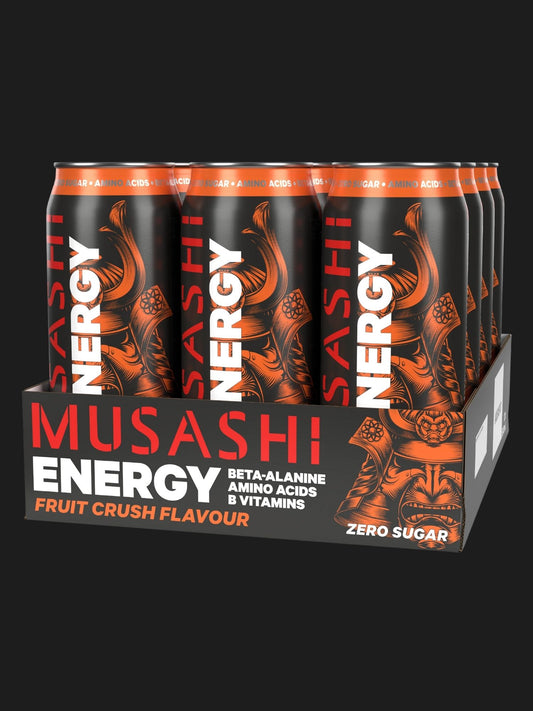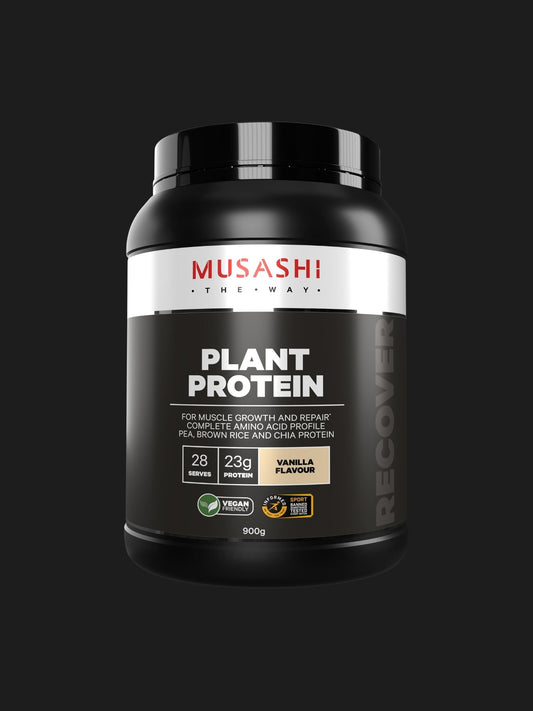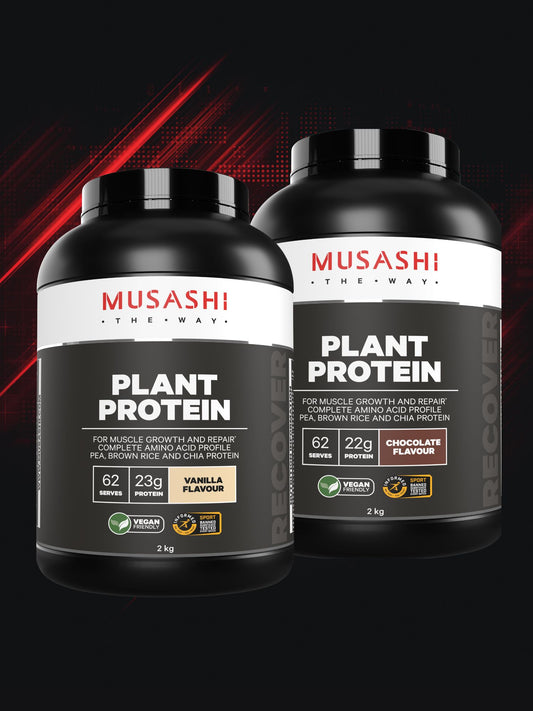Our FAQs have been written by Gwen Gothard, Sport Performance Nutritionist.
Is plant protein powder better than whey protein powder?
The choice between plant-based and whey protein depends on individual preference and dietary needs.
Plant-based protein powders can be beneficial for those seeking a vegan or vegetarian diet, or for those who are lactose sensitive or lactose intolerant. They often provide a variety of essential nutrients and can be as effective as animal-based protein in meeting protein needs.
While, whey protein may be preferable for those seeing a complete source of essential amino acids from animal products. Ultimately, the ‘better’ option varies based on personal circumstances.
How to use plant-based protein powder / how to use plant protein powder
Musashi Plant Protein Powder can be used the same as any protein powder. It can be mixed with the recommended serving of water, milk alternative or blended into a smoothie. Musashi Plant Protein powder can also be incorporated into recipes like pancakes or energy bars for added protein.
Does plant protein powder build muscle / is it good for building muscle?
Yes, plant-based protein powder can be effective for building muscle when combined with a balanced diet and regular strength training. It provides essential amino acids for muscle growth and repair.
Do plant-based protein powders work?
Yes, plant-based protein powders can be effective sources of protein for those seeking to meet their daily protein needs. They contain a good amino acid profile and are suitable for a vegan diet.
Is plant protein powder good / are plant-based protein powders good?
Plant protein powder are a valuable part of a healthy diet, especially for vegetarians and vegans. They typically offer essential amino acids and are low in saturated fat. Additionally, incorporating plant-based proteins supports environmental sustainability and animal welfare for those embracing this lifestyle.
Is plant based protein powder good for weight loss?
Plant based protein powder can be beneficial for weight loss as it’s typically low in calories, high in protein, and can help control hunger. It supports muscle maintenance during weight loss, supporting a balanced diet and promoting satiety.
Are plant-based protein powders safe?
Yes, plant-based protein powders are safe. They offer essential nutrients, are typically low in saturated fat and high in fibre. Common sources include pea protein and rice protein. Some brands may include grain, nuts, and seeds. Always check the label if you suffer from such ingredients.
How is plant protein powder made?
Plant protein is made by extracting protein from various plant sources like pea and brown rice. The plants are processed to isolate protein through techniques like milling, water extract, and filtration. The protein concentrates or isolate is then dried and ground into powder suitable for consumption.
Can you mix collagen with plant-based protein powder
Yes, you can mix collagen with plant-based protein powder if you wish to combine the benefits of both types of protein. Collagen is a type of protein derived from animal connective tissue, while plant-based is derived from plant sources like peas, rice, hemp, soy and other legumes. Combining collagen and plant-based protein powder can provide a more
comprehensive amino acid profile. By adding collagen to plant-based protein, the mixture would not be considered vegetarian, as collagen is an animal-derived ingredient.
Is plant protein powder bad for kidneys?
Plant-based protein powder is generally considered safe for most people. Protein metabolism does put some strain on the kidneys, as they are responsible for filtering waste products from protein breakdown. In individuals with healthy kidneys, this is typically not a concern. However, people with kidney disease ore compromised kidney function may need to seek advice from a health care professional as some individuals may need to limit overall protein intake to reduce the workload on their kidneys.
Does plant-based protein powder cause acne?
Plant based protein powder has not been directly linked with causing acne. However, individual’s reactions can vary, and allergies to specific ingredients may trigger skin issues in some individuals. It is best to monitor your body’s response and seek advice form a health care professional if you are concerned.
How much plant protein powder per day?
The amount of protein powder you should consume per day can vary depending on several factors, including your individual dietary needs, activity level, overall protein intake from all sources, and any specific fitness or health goals. An approximate suggestion would be between 1-2 plant-based protein shakes per day.
Can we use expired protein powder for plants?
Yes, this is possible. However, using expired protein powder for plants is not harmful, but its natural value may have degraded. It’s advisable to use fresh and suitable fertilizers for optimal plant growth and health.
What's the best plant protein powder?
Musashi Plant Protein is a popular choice, offering a blend of pea, brown rice, and chia protein. It’s known for its high protein content, amino acid profile, quality taste and digestibility. Embraced by fitness enthusiasts and health-conscious individuals, it stands out as a reliable plant-based protein source.
